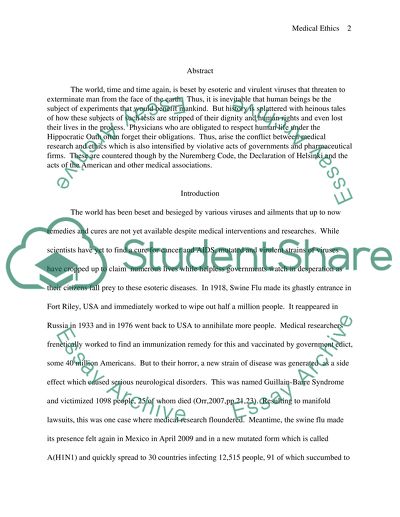Cite this document
(Conflict Between Research and Ethics Essay Example | Topics and Well Written Essays - 2250 words, n.d.)
Conflict Between Research and Ethics Essay Example | Topics and Well Written Essays - 2250 words. https://studentshare.org/health-sciences-medicine/1506351-conflict-between-research-and-ethics
Conflict Between Research and Ethics Essay Example | Topics and Well Written Essays - 2250 words. https://studentshare.org/health-sciences-medicine/1506351-conflict-between-research-and-ethics
(Conflict Between Research and Ethics Essay Example | Topics and Well Written Essays - 2250 Words)
Conflict Between Research and Ethics Essay Example | Topics and Well Written Essays - 2250 Words. https://studentshare.org/health-sciences-medicine/1506351-conflict-between-research-and-ethics.
Conflict Between Research and Ethics Essay Example | Topics and Well Written Essays - 2250 Words. https://studentshare.org/health-sciences-medicine/1506351-conflict-between-research-and-ethics.
“Conflict Between Research and Ethics Essay Example | Topics and Well Written Essays - 2250 Words”. https://studentshare.org/health-sciences-medicine/1506351-conflict-between-research-and-ethics.


